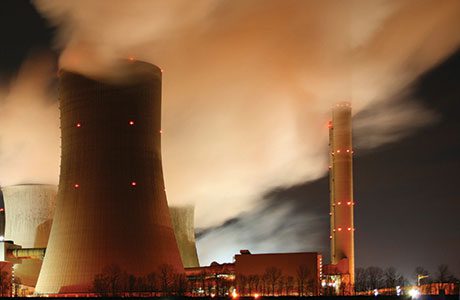
EUROPEAN leaders have reached agreement on a pact that commits the EU to cut greenhouse gases by at least 40% by 2030, measured against benchmark 1990 levels. The Brussels summit, which took place in late October, saw the agreement of two separate 27% targets, for renewable energy market share and further increases in energy efficiency.
The deal was an attempt to set out a strong position for Europe in the battle against climate change, ahead of a global summit on the topic in Paris next year.
However, some criticised the agreement for its lack of ambition and its non-binding nature.
Herman Van Rompuy, the president of the European Council told a press conference in Brussels that the discussion process had not been easy, but that leaders had “managed to reach a fair decision that sets the EU on an ambitious but cost-effective climate path”.
The issue of energy saving apparently dominated the talks. Poland, a country heavily dependent on fossil fuels, secured concessions that will allow it to continue to subsidise the modernisation of its coal-fired power plants. It had previously threated to veto the summit outcome unless the cost to its own economy could be minimised.
The Guardian reported that a poll conducted by TNS and YouGov for the online activist group Avaaz in mid October found that 56% of Poles thought that EU financial support for energy should back clean energy rather than fossil fuels.
For his part, David Cameron appeared keen to avoid ceding further control of energy policy to Europe.
The deal makes the EU the first major economy to set post-2020 emissions targets ahead of a global climate pact that is supposed to be adopted next year in Paris. Other countries including the US and China are bound to be measured against the EU goals as they present their own emissions targets.
Among those critical of the outcome of the talks were representatives from Knauf Insulation, a manufacturer of insulation and energy saving products.
The company’s Barry Lynham criticised the European Council for watering down the European Union’s energy efficiency targets for 2030 to 27%.
Many forward-thinking EU Member States had shared a vision for a minimum target of 30% across Europe, he said, referring to the millions of jobs that could be created through the energy-efficient renovation of housing stock, and the opportunity to loosen our dependence of foreign energy.
Especially disappointing, he said, was the UK’s role as the main stumbling block to achieving these ambitions. It’s unclear whether David Cameron’s motivation was an effort to combat UKIP – to brandish the outcome as a win against the power of Europe – or a result of the UK having already backed their ‘low carbon’ winners in nuclear and fracking.
“The Council’s message to Knauf Insulation and the rest of the energy efficiency industry is clear, ‘Leave Europe and make your investments elsewhere’,” said Lynham.







